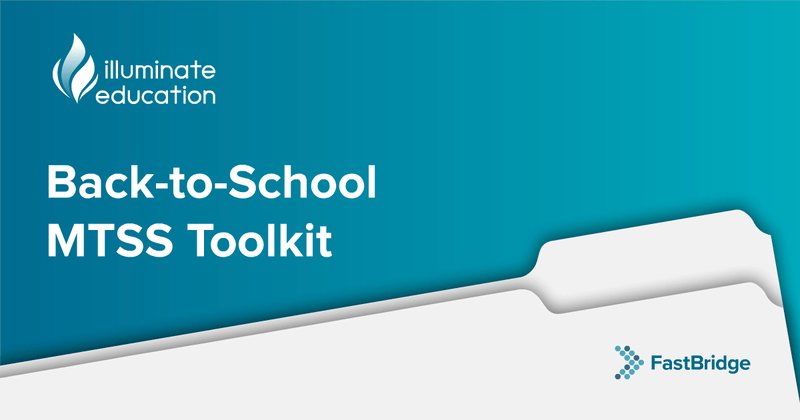By: Dr. Peter M. Nelson—Penn State University College of Education
From the superintendent to the classroom teacher, everyone in education thinks more and more about testing. Do we need tests? If so, what kind of tests? How much testing is enough? Those questions are often very difficult to answer.
When we test, the hope is that we will learn something new and then use that knowledge to improve the student learning experience. Simply getting more information isn’t always useful—that information might be redundant or available in such a way that taking action is difficult.
When considering the advantages and disadvantages of testing, keep in mind that tests can be useful, but only insofar as they are used as intended.
The need for data in a tiered model of service delivery
In recent years, schools across the country have begun to conceptualize student needs in tiers. As a student’s need for support increases, additional resources are deployed to meet that need.
A fundamental component of tiered service delivery is that those needs vary along a continuum; however, instructional decisions and the allocation of school resources hinge on whether relevant data on student performance are available. Although it can feel like some tests are unwarranted, many tests inform important decisions about the instructional experiences of students.
Formative Assessment: Screening, skill diagnosis, and progress monitoring
Resources are limited in schools and deciding how to best use additional instructional resources is a critical component of effective service delivery. While teachers can (and should) play a key role in selection of students for support, schools should also pair that perspective with objective achievement data.
Information from brief academic screening measures helps schools to be confident in the way they use their staff to support students. Screening helps schools decide when to add supports and when those supports are no longer needed.
Although we often find ourselves focused on individual students when we discuss screening, schools might use screening tests to improve core instruction as well. For example, if a large number of students are observed to be struggling, schools can use that information to make broader changes to service delivery or provide targeted professional development opportunities for teachers.
Finally, it’s important to remember the purpose of screening is not simply to test and evaluate. When we see a discrepancy between what we expect and what we observe in schools, we don’t simply admire that difference, we act on it.
Schools might also use additional tests throughout the school year to guide instruction. Once teachers know that students need help, they might follow up on screening data to identify specific skills that need work. Teachers might review student performance on a screening test, administer brief sub-skill assessments, or review other existing information to ensure that students gets support that is appropriately targeted.
Further, once students receive support, it is critical for teachers to gauge the effects of that support. To that end, schools typically monitor student progress with very brief measures that are more closely aligned with the target skill. That information helps teachers determine when to modify, continue, or discontinue an academic intervention.
To help summarize the potential benefits of formative assessment, consider two possible scenarios for a student struggling in math. As you read, note that this represents just one possible way in which schools might support students using formative assessment.
| Formative Assessment | No Assessment | |
| Sept. | Eddie participates in a universal screening test and is observed to be below the benchmark for math performance. A school team reviews Eddie’s performance and observes that he struggled most often with problems that required regrouping strategies and single digit multiplication. The team elects to use a brief (10-15 minute) evidence-based intervention that targets regrouping. | Eddie attends class as usual |
| Oct. | Eddie receives daily support and his progress on problems with regrouping is monitored weekly. | Eddie’s teacher begins to notice that Eddie is struggling with math in class. |
| Nov. | Eddie continues to receive support and demonstrates gains in regrouping. The instructional team reviews the data and shifts the support to target basic multiplication facts. | Eddie’s teacher calls home to discuss Eddie’s performance in class and possible support options. |
| Dec. | Eddie continues to receive support (now with math facts). | The school team works with the teacher to determine an intervention. |
| Jan. | Eddie participates in the winter screening test (which covers many different math skills) and demonstrates a level of performance that places him on track to meet grade-level standards. | Eddie continues to receive support (based on teacher recommendation) and the teacher looks for changes in his performance in class. |
In the scenario above, formative assessment practices help to (1) quickly identify Eddie as a student who might need support (2) identify an instructional target, (3) monitor Eddie’s growth, and (4) determine when Eddie no longer needs support.
Without formal screening and progress monitoring measures, Eddie’s performance and support are driven almost entirely by class performance. This is not necessarily a bad thing—teacher input and class performance are important for problem-solving—but a formal assessment process helps to improve efficiency and precision.
So, while the debate may ensue about the time required and benefits of standardized assessment driven by accountability initiatives, the classroom formative assessment—when applied as intended—can have powerful effects on teaching and learning.
Dr. Nelson is an Assistant Professor of School Psychology at Penn State University. He completed his doctoral training in school psychology at the University of Minnesota after obtaining his M.A. in education from the University of Mississippi. A former high school teacher, his primary research interests focus on data-based decision-making, prevention, and intervention in the classroom setting. He has published and presented on issues related to effective math intervention, classroom environment assessment, teacher development, screening, and progress monitoring.



![[eBook] Get the Whole Picture: Using Social, Emotional and Behavioral Assessments to Support Student Success](https://5196620.fs1.hubspotusercontent-na1.net/hubfs/5196620/AdobeStock_157265506.jpeg)



